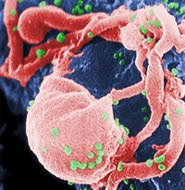Taking birth control pills or hormone replacement therapy could protect women against brain aneurysms later in life, a new study suggests, although one neurologist questioned the quality of the research. Cerebral aneurysms occur when a blood vessel in the brain weakens and balloons out, potentially leading to a hemorrhagic (or bleeding) stroke if the vessel bursts. These types of aneurysms are more common in women than men, possibly because lower levels of female hormones after menopause play a role in their development, the study authors noted.
Brain aneurysms are more common after the age of 40 and are most likely to burst when people are in their 50s. In the study, Dr. Michael Chen, of Rush University Medical Center, and colleagues interviewed 60 women who had experienced brain aneurysms and asked about their use of birth control pills and hormone replacement therapy, and compared their answers to those from a group of almost 4,700 other women in the general U.S. public. The women who had brain aneurysms were significantly less likely to have taken birth control pills or received hormone replacement therapy, and were also more likely to have entered menopause earlier, according to the report published online May 4 in the Journal of NeuroInterventional Surgery.
Previous research has suggested that taking birth control pills lowers the risk of hemorrhagic (bleeding) stroke in later life. However, women who either begin menstruating at an early age, don't have children, or both, face a higher risk. Because estrogen is important for the repair and maintenance of blood vessel walls, a drop in the levels of the female hormone is believed to be the reason for the increased risk to the structure of these vessels, the study authors noted in background information about the research. However, commenting on the study, neurologist Dr. Cathy Sila said the research is flawed and its conclusions overstated.
You have read this article Blood /
blood pressure /
Brain /
brain aneurysms /
disease /
health care /
hormone /
pills
with the title Blood. You can bookmark this page URL http://aganaktismenoi-volos.blogspot.com/2011/05/can-hormone-therapy-or-pill-prevent.html. Thanks!





























